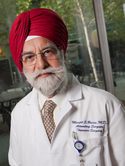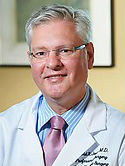Paclitaxel, ifosfamide, and cisplatin as initial salvage chemotherapy for germ cell tumors: Long-term follow-up and outcomes for favorable- and unfavorable-risk disease Journal Article
| Authors: | Gleeson, J. P.; Knezevic, A.; Bromberg, M.; Patil, S.; Sheinfeld, J.; Carver, B. S.; Bains, M.; Jones, D. R.; Bajorin, D. F.; Bosl, G. J.; McHugh, D. J.; Funt, S. A.; Motzer, R. J.; Feldman, D. R. |
| Article Title: | Paclitaxel, ifosfamide, and cisplatin as initial salvage chemotherapy for germ cell tumors: Long-term follow-up and outcomes for favorable- and unfavorable-risk disease |
| Abstract: | PURPOSE Paclitaxel, ifosfamide, and cisplatin (TIP) is an established salvage regimen for germ cell tumors (GCT) on the basis of a phase II trial, but efficacy on a large patient cohort including patients with unfavorable risk features and long-term outcomes has not been reported. Herein, we report updated treatment efficacy and long-term follow-up with TIP. PATIENTS AND Patients with GCT who received TIP after cisplatin-based chemotherapy METHODS were eligible. Favorable response (complete response or partial response with negative tumor markers), overall survival (OS) and progression-free survival (PFS) rates, relapse, and toxicity were determined. Disease was reclassified according to the International Prognostic Factor Study Group (IPFSG) score. RESULTS Of the 104 patients, 87 had favorable risk factors and 17 had at least one unfavorable factor by Memorial Sloan Kettering Cancer Center (MSKCC) criteria. Ten patients were treated for a second gonadal primary GCT. With a median follow-up of 8.9 years, the 5-year PFS and OS rates were 66% (95% CI, 55 to 74) and 69% (95% CI, 59 to 77), respectively. Among 87 patients with favorable-risk disease, 69 (79%) achieved a favorable response with 5-year PFS and OS rates of 67% (95% CI, 56 to 76) and 72% (95% CI, 61 to 80), respectively. Among 17 patients with MSKCC unfavorable-risk disease, 13 (76%) achieved a favorable response with 5-year PFS and OS rates of 59% (95% CI, 33 to 78) and 56% (95% CI, 28 to 76), respectively. After IPFSG reclassification, 5-year PFS and OS rates for patients with ≤intermediate-risk disease were 75% (95% CI, 50 to 89) and 73% (95% CI, 55 to 85), respectively. CONCLUSION TIP is an effective second-line regimen for patients with GCT. Similar outcomes were observed in patients with favorable- and unfavorable-risk disease. The randomized TIGER trial (ClinicalTrials.gov identifier: NCT02375204) comparing TIP with high-dose chemotherapy will determine the optimal second-line treatment approach. © 2024 by American Society of Clinical Oncology. |
| Keywords: | adolescent; adult; cancer survival; controlled study; treatment outcome; treatment response; aged; middle aged; survival rate; young adult; major clinical study; overall survival; mortality; cancer recurrence; salvage therapy; cisplatin; cancer combination chemotherapy; cancer growth; drug efficacy; paclitaxel; adjuvant therapy; outcome assessment; follow up; follow-up studies; antineoplastic agent; carboplatin; progression free survival; infection; lung toxicity; multiple cycle treatment; etoposide; neuropathy; thrombocytopenia; antineoplastic combined chemotherapy protocols; cohort analysis; cyclophosphamide; kidney failure; continuous infusion; pathology; risk factor; ifosfamide; vinblastine; high risk patient; risk assessment; drug hypersensitivity; febrile neutropenia; drug fatality; therapy delay; scoring system; testis tumor; testicular neoplasms; dactinomycin; bleomycin; neoplasms, germ cell and embryonal; mesna; drug therapy; drug dose increase; drug substitution; levofloxacin; germ cell tumor; granulocyte colony stimulating factor; cytopenia; non seminomatous germinoma; intermediate risk patient; second-line treatment; first-line treatment; humans; human; male; female; article; germ cell and embryonal neoplasms; mskcc score; international prognostic factor study group score |
| Journal Title: | Journal of Clinical Oncology |
| Volume: | 42 |
| Issue: | 26 |
| ISSN: | 0732-183X |
| Publisher: | American Society of Clinical Oncology |
| Date Published: | 2024-09-10 |
| Start Page: | 3130 |
| End Page: | 3139 |
| Language: | English |
| DOI: | 10.1200/jco.23.02542 |
| PUBMED: | 39028926 |
| PROVIDER: | scopus |
| PMCID: | PMC12150303 |
| DOI/URL: | |
| Notes: | The MSK Cancer Center Support Grant (P30 CA008748) is acknowledged in the PubMed record and PDF. Corresponding MSK author is Darren R. Feldman -- Source: Scopus |
















